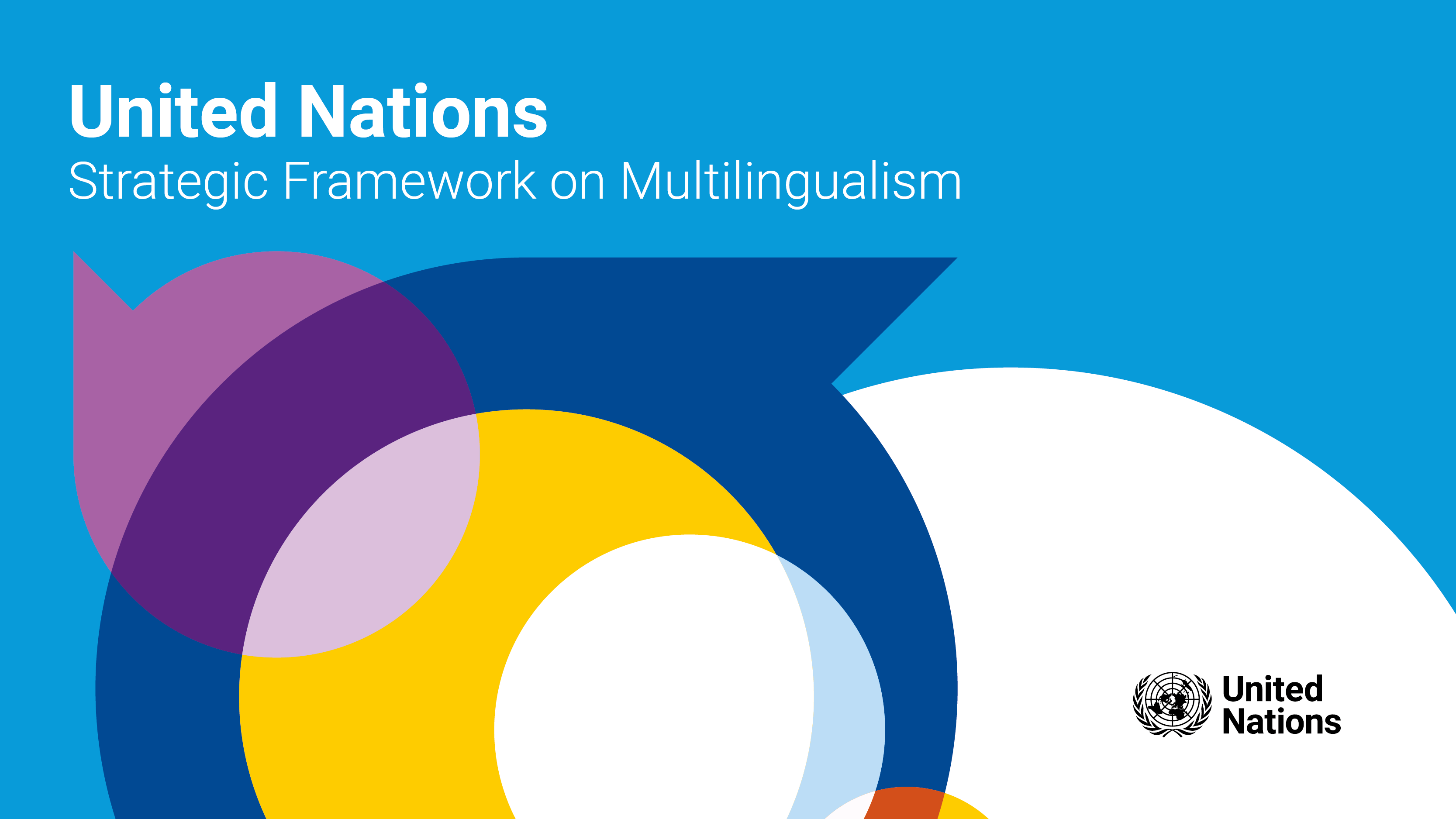Multilingualism
The General Assembly has consistently underlined the importance that multilingualism, a core value of the Organization, plays in achieving the goals of the United Nations as set out in the Charter and is personally committed to fostering multilingualism throughout the United Nations system.
The United Nations Under-Secretary-General for General Assembly and Conference Management, as Coordinator for Multilingualism, serves as the lead for multilingualism-related matters at the United Nations system level. Most CEB member organizations have designated multilingualism focal points.
The Secretariat of the Chief Executives Board for Coordination supports the Coordinator for Multilingualism and facilitates the designation of focal points for multilingualism and the sharing of policies and tools related to multilingualism across UN entities.
More information can be found on the dedicated page in the Department for General Assembly and Conference Management web portal.
United Nations Strategic Framework on Multilingualism

Launched in March 2024, in implementation of General Assembly resolutions on multilingualism (most recently A/RES/76/268) and a recommendation by the Joint Inspection Unit (JIU/REP/2020/6), the United Nations Strategic Framework on Multilingualism is the first of its kind within the Secretariat and system-wide.
Developed under the direction of the Under-Secretary-General for General Assembly and Conference Management, in his capacity as the United Nations Coordinator for Multilingualism, the Framework is the result of activities undertaken in 2022, including by a working group comprising 49 Secretariat entities, and of extensive consultations conducted with key Secretariat entities throughout 2023.
The Framework reaffirms the Organization’s commitment to multilingualism by integrating language considerations into every aspect of the Secretariat’s work.
In addition to presenting the findings of a comprehensive review of multilingualism in the UN Secretariat, it outlines three broad goals and a series of recommended next steps, that are grouped into areas of action.
The Framework is expected to contribute to further mainstreaming multilingualism, both internally and externally, in an accountable and data-driven manner, while taking into account operational needs, budgetary constraints and resource requirements.
It is hoped that it could also serve as an example for the development of similar frameworks in other CEB member organizations.
Read the Strategic Framework in the six official languages of the United Nations: Arabic | Chinese | English | French | Russian | Spanish
Related resources
-
Chief Executives Board (CEB)
2021 Annual Overview Report
-
High-Level Committee on Management (HLCM)
UN Semantic Interoperability Framework for Normative and Parliamentary Documents (UNSIF)
-
High-Level Committee on Management (HLCM)
Session Report